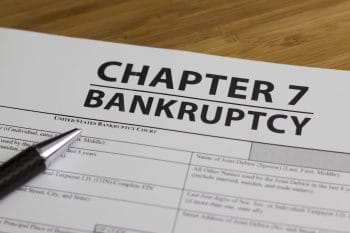
The American Pain Society’s Alleged Role in the Opioid Epidemic
As the first Opioid trial began in Oklahoma two weeks ago, it’s been front-page news that the manufacturers of Opioid painkillers such as Teva Pharmaceuticals and Johnson & Johnson are being held responsible by state governments for inciting the nationwide Opioid Crisis. However, what many people don’t know is that state prosecutors aren’t just targeting drug companies – pain research associations are also being sued. After being named in multiple lawsuits for facilitating guidelines in favor of the drug epidemic, the American Pain Society (APS) is considering filing for bankruptcy out of financial necessity.
According to the International Union Operating Engineers and the Intergovernmental Risk Management Agency, pain research groups received “significant financial support” from Opioid manufacturers, then “deceptively promoted the use of Opioids for chronic pain.”
The American Pain Society isn’t a big pharma company; it’s a research-based organization comprised of scientists and clinicians that study and research the treatment of chronic pain. Despite the fact that many of its members are a part of the academic community, the APS has been named as a defendant in numerous lawsuits involving the marketing of Opioid prescriptions. Lawyers are calling the American Pain Society and other medical organizations like it “front groups” for Opioid manufacturers like Purdue and Johnson & Johnson. According to the International Union Operating Engineers and the Intergovernmental Risk Management Agency, these pain research groups received “significant financial support” from Opioid-making companies and then “deceptively promoted the use of Opioids for chronic pain.” Lawyers are citing as proof the guidelines created by the organization that encouraged doctors not to fear Opioids, and therefore more freely prescribe them.
The Fifth Vital Sign: Pain
The APS is specifically being held accountable because the society invented the controversial idea that pain should be viewed as a “fifth vital sign” of people’s health. This concept arguably helped lead to the rampant over-prescription of Opioids by physicians.
The American Pain Society President, Bill Maixner, vehemently denies those claims.
We have always been at arms’ length from pharmaceutical companies with respect to our guidelines and our policies. Never have we had the intention of interacting with manufacturers in this way.
from an interview in Pacific Standard, 2019
However, a congressional investigation found that between the years of 2012 and 2017, the organization had received more than $960,000 from America’s top five Opioid manufacturers.
For the American Pain Society, the financial pressure the lawsuits have applied has become nearly unbearable. In April, Maixner announced that the organization wouldn’t have its annual meeting in 2020, as it tried to stay financially afloat under the weight of the lawsuits. Even before the suits, the APS was suffering from declining membership and fewer grants from the pharmaceutical industry due to public scrutiny.
Legal action has only exacerbated these problems.
In May, an email went out to American Pain Society members, explaining that the board recommended the society enter bankruptcy proceedings. APS members must agree, by vote, for the organization to start the bankruptcy process. The vote closed May 29. If the members voted in favor of bankruptcy, the APS will be the second pain management organization to cease operations.
What Does This Mean for Chronic Pain Treatment?
With national public attention now focused on Opioid overprescribing and the prevalence of addiction to these medications, people suffering from chronic pain are saying it’s harder to find adequate treatment. Doctors are now much stricter with the use of Opioids for pain and will generally only prescribe them in the most severe of cases. Many of those dealing with chronic pain are worried that with pain research organizations such as APS closing down, not enough research will be conducted to help find adequate treatment plans for pain and alternative treatment methods.
Both pain patients and scientists alike worry that the dissolution of groups like the American Pain Society will slow critical research into how to treat pain without Opioids. Supporters of the APS say that the group used its money not to push Opioids for big pharma, but to advocate for appropriate access to the drugs for patients suffering with pain, as well as advocate for access to non-drug treatments, like acupuncture and massage therapy, and chiropractic treatments.
Beth Darnell, PhD, pain researcher associate professor of anesthesiology at Stanford University’s Pain Management Center agrees that if APS does file for bankruptcy, it will prove detrimental to both the medical community and patients.
“It would be a tremendous loss for pain education and pain research. They’ve really been a go-to place for researchers and clinicians.”
The American Pain Society has yet to release a press statement on the outcome of the member vote for bankruptcy, but is expected to in the coming weeks.